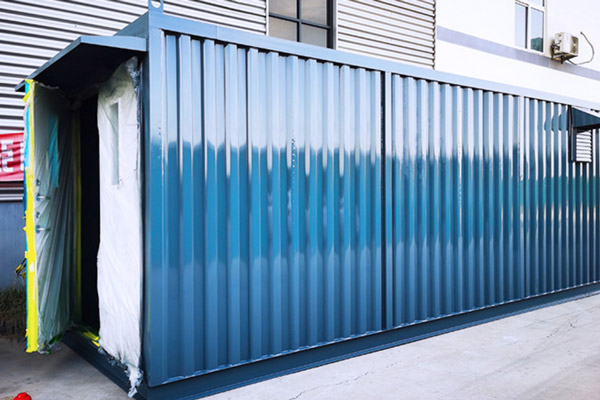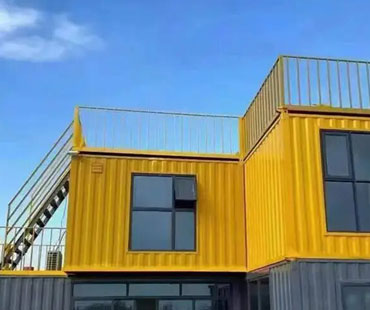In the ever-evolving world of logistics and transportation, efficiency and flexibility are paramount. Among the various container types available, flatbed containers have emerged as a preferred choice for businesses seeking versatile solutions for transporting oversized and irregularly shaped cargo.
Flatbed containers, as the name suggests, are designed with a flat platform and lack side walls or a roof. This design allows for the easy loading and unloading of cargo using cranes, forklifts, or other heavy equipment. Typically constructed from robust materials to withstand the rigors of hauling heavy items, flatbed containers are available in various sizes, accommodating different types of cargo.

Advantages of Flatbed Containers
1.Versatility in Cargo Types
One of the most significant advantages of flatbed containers is their ability to transport a wide range of cargo. From heavy machinery and construction materials to large steel beams and vehicles, flatbed containers can handle it all. Their open design provides the flexibility needed to transport goods that do not fit within traditional container dimensions.
2.Ease of Loading and Unloading
The flat design of these containers allows for straightforward loading and unloading from multiple angles. This flexibility is particularly beneficial for businesses that frequently handle oversized or heavy items. With the right equipment, cargo can be loaded quickly and efficiently, reducing turnaround times and enhancing productivity.
3.Cost-Effectiveness
Transporting large or heavy items often incurs additional costs due to the need for specialized equipment or services. Flatbed containers can mitigate these costs by allowing for the consolidation of cargo. Instead of using multiple smaller containers, businesses can transport larger loads in a single flatbed, optimizing shipping space and reducing overall transportation expenses.
4.Durability and Strength
Flatbed containers are built to withstand harsh transportation conditions. Constructed from high-quality materials, they offer superior strength and durability, ensuring that cargo remains secure during transit. This robustness is particularly important for heavy machinery and industrial equipment, which require a stable platform for safe transportation.
5.Flexibility for Specialized Cargo
Certain items, such as oversized machinery, require specialized transport solutions. Flatbed containers can be equipped with additional features, such as tie-down points and adjustable supports, to accommodate various cargo types securely. This adaptability makes them suitable for industries ranging from construction to aerospace.
Flatbed containers represent a key solution in the transportation and logistics industry, offering unmatched flexibility and efficiency for moving oversized and irregularly shaped cargo. Their robust design, ease of access, and cost-effectiveness make them an essential tool for businesses across various sectors. As the demand for flexible transportation solutions continues to grow, flatbed containers will undoubtedly play a crucial role in shaping the future of logistics.


